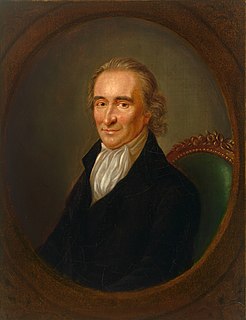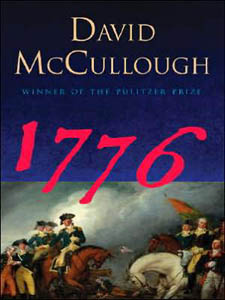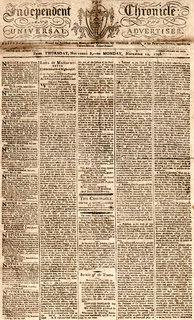Events
This section is empty.You can help by adding to it.(January 2013) |
| |||
|---|---|---|---|
1776 in philosophy
This section is empty.You can help by adding to it.(January 2013) |

Adam Smith was a Scottish economist, philosopher and author as well as a moral philosopher, a pioneer of political economy and a key figure during the Scottish Enlightenment, also known as ''The Father of Economics'' or ''The Father of Capitalism''. Smith wrote two classic works, The Theory of Moral Sentiments (1759) and An Inquiry into the Nature and Causes of the Wealth of Nations (1776). The latter, often abbreviated as The Wealth of Nations, is considered his magnum opus and the first modern work of economics. In his work, Adam Smith introduced his theory of absolute advantage.

An Inquiry into the Nature and Causes of the Wealth of Nations, generally referred to by its shortened title The Wealth of Nations, is the magnum opus of the Scottish economist and moral philosopher Adam Smith. First published in 1776, the book offers one of the world's first collected descriptions of what builds nations' wealth, and is today a fundamental work in classical economics. By reflecting upon the economics at the beginning of the Industrial Revolution, the book touches upon such broad topics as the division of labour, productivity, and free markets.

Thomas Paine was an English-born American political activist, philosopher, political theorist, and revolutionary. One of the Founding Fathers of the United States, he authored the two most influential pamphlets at the start of the American Revolution and inspired the patriots in 1776 to declare independence from Britain. His ideas reflected Enlightenment-era ideals of transnational human rights. Historian Saul K. Padover described him as "a corsetmaker by trade, a journalist by profession, and a propagandist by inclination".
This section is empty.You can help by adding to it.(January 2013) |
Sophie Germain

The United States Declaration of Independence is the statement adopted by the Second Continental Congress meeting at the Pennsylvania State House in Philadelphia, Pennsylvania, on July 4, 1776. The Declaration announced that the Thirteen Colonies at war with the Kingdom of Great Britain would regard themselves as thirteen independent sovereign states, no longer under British rule. With the Declaration, these new states took a collective first step toward forming the United States of America. The declaration was signed by representatives from New Hampshire, Massachusetts Bay, Rhode Island, Connecticut, New York, New Jersey, Pennsylvania, Maryland, Delaware, Virginia, North Carolina, South Carolina, and Georgia.

1776 is a musical with music and lyrics by Sherman Edwards and a book by Peter Stone. The story is based on the events surrounding the signing of the Declaration of Independence. It dramatizes the efforts of John Adams to persuade his colleagues to vote for American independence and to sign the document.
The Virginia Declaration of Rights is a document drafted in 1776 to proclaim the inherent rights of men, including the right to reform or abolish "inadequate" government. It influenced a number of later documents, including the United States Declaration of Independence (1776) and the United States Bill of Rights (1789).

The Landing at Kip's Bay was a British amphibious landing during the New York Campaign in the American Revolutionary War on September 15, 1776, occurring on the eastern shore of present-day Manhattan.
Philipp Ludwig Statius Müller was a German zoologist.

"Commonwealth" is a designation used by four of the 50 states of the United States in their full official state names: Kentucky, Massachusetts, Pennsylvania, and Virginia. "Commonwealth" is a traditional English term for a political community founded for the common good. Prior to the formation of the United States of America in 1776, all four were part of Great Britain's possessions along the Atlantic coast of North America. As such, they share a strong influence of English common law in some of their laws and institutions.

1776 is a book written by David McCullough, first published by Simon & Schuster on May 24, 2005. The work is considered a companion piece to McCullough's earlier biography of John Adams, and focuses on the events surrounding the start of the American Revolution. While revolving mostly around the leadership of George Washington, there is also considerable attention given to King George III, General Howe, Henry Knox, and Nathanael Greene. Key Revolutionary War battles detailed in the book include the Battle of Dorchester Heights, the Battle of Long Island, and the Battle of Trenton. The actual signing of the Declaration of Independence is treated as a somewhat minor detail, as the main focus of the book is on military rather than political events. The book includes multiple pages of full color illustrations, including portraits and historical battlefield maps made by British engineers at the time.

The Committee of Five of the Second Continental Congress was a group of five members who drafted and presented to the full Congress what would become America's Declaration of Independence of July 4, 1776. This Declaration committee operated from June 11, 1776, until July 5, 1776, the day on which the Declaration was published.

The Constitution of Pennsylvania is the supreme law within the Commonwealth of Pennsylvania. All acts of the General Assembly, the governor, and each governmental agency are subordinate to it. Since 1776, Pennsylvania's Constitution has undergone five versions. The current Constitution entered into force in 1968, and has been amended numerous times.
The 1776 English cricket season was the fifth in which matches have been awarded retrospective first-class cricket status. The scorecards of seven first-class matches have survived. The earliest printed cricket scorecard templates were introduced during 1776.
The Supreme Director of the United Provinces of the Río de la Plata was a title given to the executive officers of the United Provinces of the Río de la Plata according to the form of government established in 1814 by the Asamblea del Año XIII. The supreme director was to wield power for a term of two years.
Washington's aides-de-camp during the American Revolutionary War were officers of the Continental Army appointed to serve on General George Washington's headquarters staff, with the rank of lieutenant colonel. The headquarters staff also included one military secretary, a full colonel.

The Independent Chronicle (1776–1840) was a newspaper in Boston, Massachusetts. It originated in 1768 as The Essex Gazette (v.1–7) in Salem, and The New-England Chronicle (v.7–9) in Cambridge, before settling in 1776 in Boston as The Independent Chronicle. Publishers included Edward E. Powars, Nathaniel Willis, and Adams & Rhoades; Capt. Thomas Adams was the editor prior to his death in 1799. Thomas Adams (ca.1757–1799). and for some time it operated from offices on Court Street formerly occupied by James Franklin. As of the 1820s, "the Chronicle [was] the oldest newspaper ... published in Boston; and has long been considered one of the principal republican papers in the state; and its influence has, at all times, been in exact proportion to the popularity of the cause which it has so warmly espoused." After 1840 the paper continued as the Boston Semi-weekly Advertiser published by Nathan Hale.
Events from the year 1776 in France
Events from the year 1776 in Russia

The Virginia gubernatorial election of 1776 was the first gubernatorial election of the newly independent Commonwealth of Virginia. It was held on June 29, 1776, forty-five days after the adoption of the Lee Resolution by the Fifth Virginia Convention asserting the independence of the United Colonies from Great Britain. The election was conducted under the provisions of the Constitution of Virginia, which had been adopted by the convention the same day and went into effect immediately. Patrick Henry, a leading advocate for independence who had served as a delegate to the First Continental Congress, was elected governor by a majority vote, defeating Thomas Nelson, Jr. and John Page.